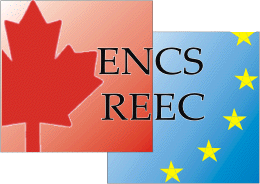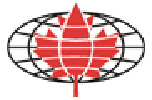9th European Seminar for Graduate Students in Canadian Studies
- Category: Events
Brno, 16 - 18 October 2000
The ninth European postgraduate seminar for Canadian Studies took place in Brno, the Czech Republic, from 16-18 October. The decision to hold the seminar in Central Europe reflected one of the ongoing concerns of the European Network for Canadian Studies - fostering the development of Canadian Studies in that region - and Brno as venue was a logical follow-up to the first international Central European Canadian Studies conference, held there two years ago in November 1998. What follows is a brief report on the main aspects of the seminar.
Participants. Altogether 22 students were chosen to participate in the seminar. Unfortunately 3 of them dropped out before the actual seminar, one of them only two days before it began and another on the first day (the day she had been planning to arrive). This meant 19 papers were delivered in the working sessions of the seminar.
The range of countries represented was good; particularly encouraging was the Central European component, which made up approximately one-third of the total. By country, the participants came from Great Britain (1), Denmark (1), Finland (1), Belgium (1), France (4), Spain (2), Italy (1), Austria (1), Poland (2), the Czech Republic (1), Hungary (2), Romania (2). Similarly, the range of topics dealt with was very wide: only five or six papers could be termed "purely" literary, while the rest dealt with such fields as film, federalism, the media and language, anthropology, health measures, ethnicity and identity. Finally, there was also a good language mix, with 8 papers delivered in French and 11 in English.
In addition to the students, there were also a number of academics present. These included Cornelius Remie, Convenor of the European Network for Canadian Studies, Robert Schwartzwald, Editor of the International Journal of Canadian Studies, Alan Hallsworth, past President of the British Association for Canadian Studies, members of the Central European Steering Committee for Canadian Studies, and several teachers from Masaryk University who are involved with Canadian Studies.
The Programme. Working sessions were spread over two and a half days, giving ample time for the papers and subsequent discussions. These were "closed", in the sense that only the participants themselves and teachers were present. The basic format was to have the papers delivered in groups of three, grouped loosely according to theme and, usually, language; each speaker had a twenty-minute maximum, and then a thirty-minute discussion period followed. Discussions were relaxed, lively and usually very much to the point. The quality of the papers ranged from good to excellent. Even those who were not in doctoral programmes presented papers based on work for master's degrees they had just defended or were about to defend, so there was no sense of presentations based on preliminary work. It is planned to publish a selection of the best papers.
In addition to the working sessions, there were two open sessions. At the first of these, which in fact opened the seminar itself, Prof. Alan Cairns of the University of Waterloo delivered a wide-ranging and immensely stimulating keynote address on "Aboriginal peoples in Canada - current issues and future prospects". The next day, Cornelius Remie, from the University of Nijmegen in the Netherlands, gave a fascinating lecture on the Inuit and Nunavut. Both attracted much attention and drew large audiences of students and members of the general public.
At the end of the seminar, on the final afternoon and evening, there was an excursion that took in the battlefield of Austerlitz (where the French participants found themselves at home on a little patch of extraterritorial French soil marking the spot from where Napoleon commanded the battle), the Baroque chateau at Milotice, and a wonderful wine-cellar at Horni Bojanovice where a group of local folk musicians provided the background to the winetasting and dining. By common consent, it was a great ending to a great seminar.
Some photographs from the seminar.





